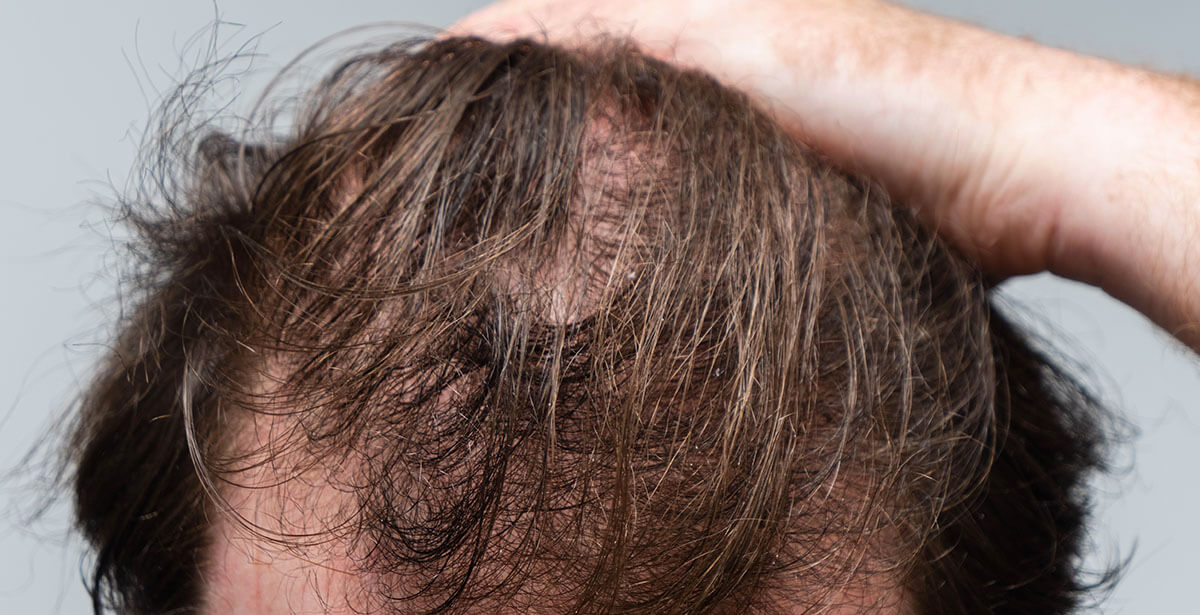
Group Chief Trichologist Kim Fong has observed an increase in clients with an unsettling side effect after COVID: losing their hair. "If you experience sudden hair loss or are concerned about hair volume after covid, it's best to seek professional help as soon as possible," recommends Kim. With proper treatment, it's possible to see new hair growth within four to six months, using hair regrowth treatments to stop excessive shedding and jump-start the regrowth process.
HAIR LOSS AND COVID-19
Hair loss is a common side effect among individuals who have been infected with COVID-19. This condition, also known as telogen effluvium, can occur due to the stress and trauma that the body experiences during a viral infection. The exact cause of hair loss in individuals with COVID-19 is not yet fully understood, but some experts believe that the virus may cause inflammation and damage to the hair follicles, while others suggest that the stress of the infection may lead to a change in the hair growth cycle. Additionally, medication and other treatments used to combat COVID-19 may also contribute to hair loss.

Understanding Telogen Effluvium
The hair growth cycle is divided into three stages: anagen, catagen, and telogen. During the anagen stage, the hair is actively growing. In the catagen stage, the hair stops growing and begins to detach from the hair follicle. Finally, in the telogen stage, the hair falls out. Normally, about 85% of the hair on a person's head is in the anagen phase and 15% is in the telogen phase. However, during telogen effluvium, more hair than usual enters the telogen phase and falls out. This results in an increase in hair shedding and a decrease in hair volume.

Symptoms of Telogen Effluvium
Symptoms of telogen effluvium include excessive hair shedding, thinning of the hair, and a decrease in hair density. Some research suggests that the telogen effluvium caused by Covid-19 may present differently from the typical form of the condition. One notable difference is that hair shedding from Covid-19 related telogen effluvium tends to occur much sooner. According to experts, hair loss usually happens within four weeks of contracting the virus, as opposed to the typical three months after a triggering event. In addition, some Covid-19 patients may also experience tenderness and altered sensations in the scalp known as "trichodynia," which is not commonly seen in typical telogen effluvium.
Hair loss is not a direct symptom of COVID-19 and not everyone who contracts the virus will experience it. However, for those who do, it can be a distressing side effect of the illness.

Advice for Managing Hair Loss
It is important to note that turning to over-the-counter hair loss shampoos and products, while tempting, is not likely to solve the problems associated with telogen effluvium. Many Trichologists discourage people from being too aggressive in trying these products, as they may end up spending a lot of money on items with marginal, if any, benefits. Additionally, home remedies found on the Internet are not medically proven to be effective for hair loss and it is best to avoid them. Consulting with a trichologist is the best course of action to address hair loss, as they will be able to assess your individual case and recommend the most appropriate treatment plan.
Fortunately, telogen effluvium is generally a temporary condition and hair will typically regrow once the body has fully recovered from the infection. In the meantime, individuals can take steps to care for their hair and scalp and maintain a healthy diet and lifestyle to support overall health and aid in recovery. If your diet lacks the necessary nutrients, consider taking supplements.

Many of Svenson's clients who suffered from COVID-related hair loss have already seen improvement, with their hair recovering and allowing them to style it as desired. "Don't lose hope. Treatment for hair loss takes persistence and time," says Kim. "But with the right approach of a treatment plan, hair regrowth is achievable.